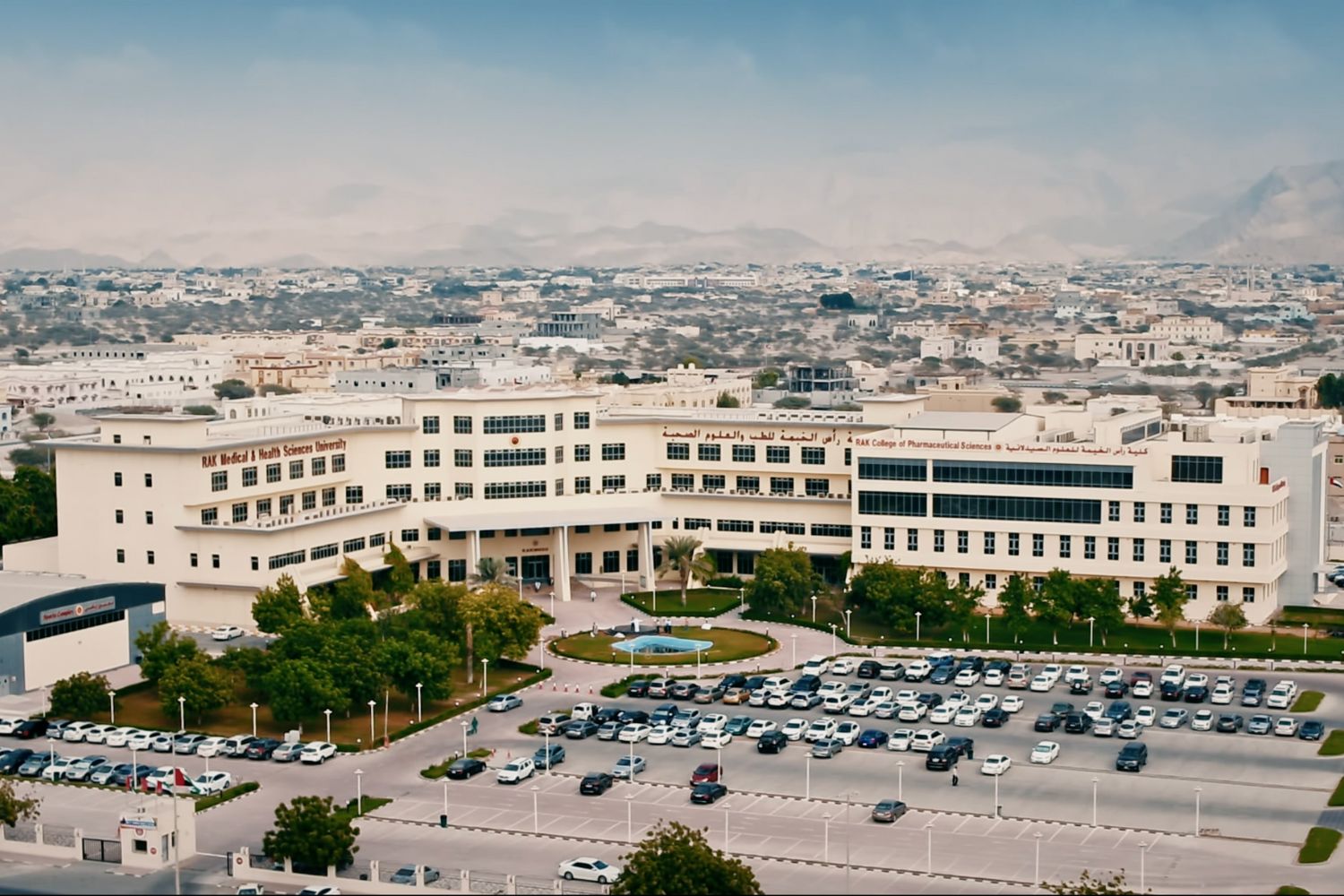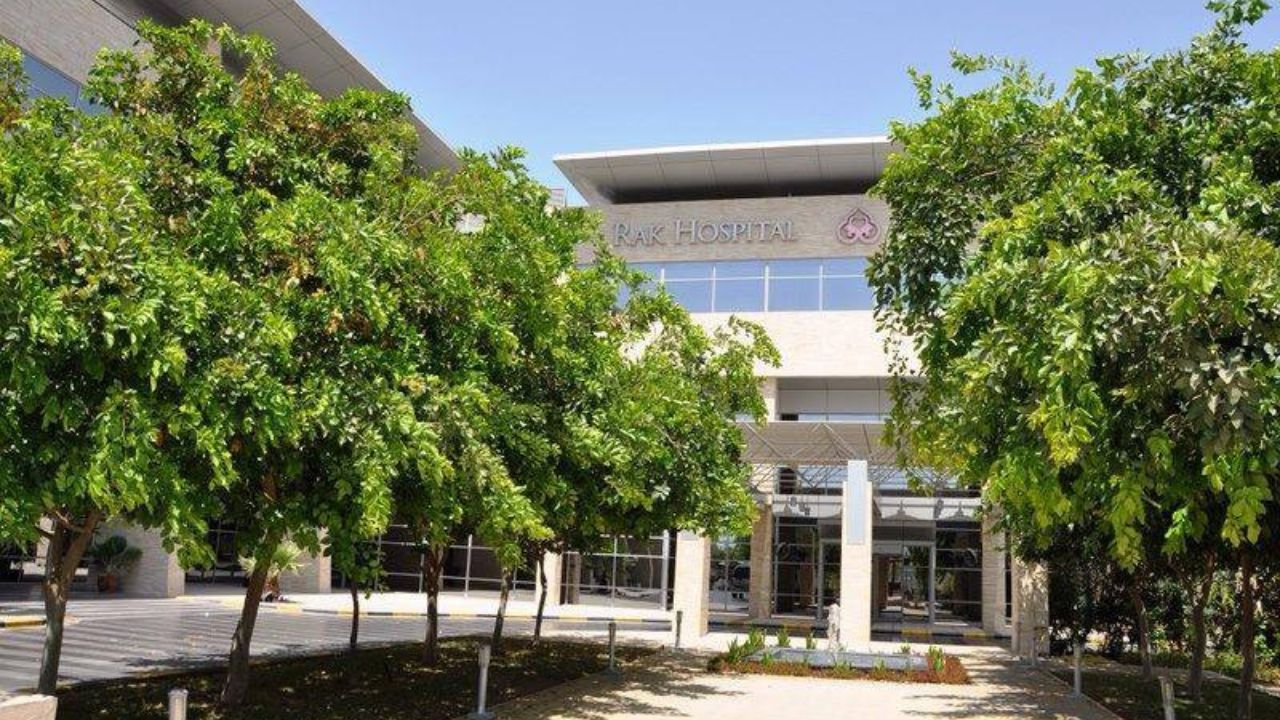
Ras Al Khaimah exemplifies the nation’s commitment to providing exemplary healthcare services in a country renowned for its dedication to excellence.
With state-of-the-art facilities, highly skilled internationally recognized medical professionals, and comprehensive healthcare services, RAK has earned its reputation for offering top-tier medical care in the region. Whether it’s preventive healthcare, specialized treatments, or emergency services, RAK ensures patient well-being is at the forefront of its priorities.
Healthcare clinics and hospitals in RAK
Here is a list of government and private healthcare facilities and hospitals in the Emirate:
Government
- Saqar Hospital in Al Juwais. Reach them by calling 00971 7 2049999 or visiting their website.
- Shaa’m Hospital in Sham. Reach them by calling 00971 800 8877 or visiting their website.
- Ibrahim Bin Hamad Obaidullah hospital in Al Oraibi. Reach them by calling 00971 800 8877 or visiting their website.
- Abdullah Bin Omran Hospital For Obstetrics & Gynecology in Al Digdaga. Reach them by calling 00971 7 2073000 or visiting their website.
- Obaidullah Elderly Hospital in Al Oraibi. Reach them by calling 00971 7 2465501 or visiting their website.
- Sheikh Khalifa Specialty Hospital in Between Taween and Dibba Road. Reach them by calling 00971 7 2444444 or visiting their website.
Private
Private:
- RAK Hospital in Al Juwais. Reach them by calling 00971 7 2074444 or visiting their website.
- Al Oraibi Hospital in Dafan Al Nakheel. Reach them by calling 00971 7 2288511 or visiting their website.
- Al Zahrawi Hospital in Nakheel. Reach them by calling 00971 7 2288544 or visiting their website.
There are also over 240+ private clinics.
Medical Insurance
In the UAE, having health or medical insurance is mandatory for all residents, including expats and citizens. The UAE Government introduced compulsory health insurance to ensure that all individuals have access to essential healthcare services and reduce the burden on the public healthcare system. Tourists, however, are not required to have medical insurance, but nonetheless, travel insurance that covers medical expenses while in the country is recommended.
Co-payments or deductibles
Every insurance provider works differently and offers different tiers of coverage. Some cover 100% of medical bills, while some cover only a percentage. Your insurance policy will outline the amount you have to pay (co-payment or deductible) and specific coverage details. It’s crucial to review your policy carefully, and if you have any questions, contact your insurance provider for clarification.
Direct billing Versus reimbursement claims
There are two kinds of insurance policies regarding the payment portion, depending on the medical facility. There are direct billing options and reimbursement claims. Direct billing means the insurance company will pay for your medical appointment (minus any co-payments or deductibles). While reimbursement claims mean you pay the total amount of your medical appointment and send a claim to your insurance provider, to be reimbursed at a later date. Your insurance provider will share the medical facilities covered under your policy.
Insurance policies in the UAE vary, so it’s essential to be familiar with the terms and conditions of your specific policy to understand your financial responsibilities and coverage limits in the event of an accident or medical emergency.
In case of an accident
If you are a resident with health insurance and have been in an accident, here are the general steps to follow to make an insurance claim. Although the specific process may vary depending on your insurance provider and policy terms:
Seek immediate medical attention
If you or anyone involved in the accident requires medical attention, seek treatment at the nearest medical facility or hospital. In the UAE, you can go to any hospital or clinic that is part of your insurance network or have a direct billing arrangement with your insurer.
Present your insurance card
At the medical facility, present your health insurance card or policy details to the hospital staff. They will verify your insurance coverage and may ask you to sign an insurance claim form.
Obtain necessary documents: The hospital or medical facility will provide you with all relevant medical records, bills, and reports. Please keep copies of these documents, as you need them to support your insurance claim.
Submit your claim
After receiving medical treatment, you or your designated representative (such as a family member or friend) must submit the insurance claim to the insurance provider if the facility is under reimbursement claims. This typically involves filling out a claims form and attaching all the required documents, including medical bills and reports. In the event of direct billing, hospitals and clinics will submit the claim directly to the provider.
Approval and payment
Your insurance provider will review your claim and, if approved, will cover eligible medical expenses according to the terms of your policy. The amount you have to pay out of pocket (known as the “co-payment” or “deductible”) will depend on your specific insurance policy. Co-payments and deductibles vary from one policy to another, so reviewing your policy documents is essential to understand your financial responsibilities.
Follow-up and reimbursement
If you initially paid for medical expenses, your insurance provider will reimburse you for the covered expenses, minus any applicable co-payments or deductibles.
